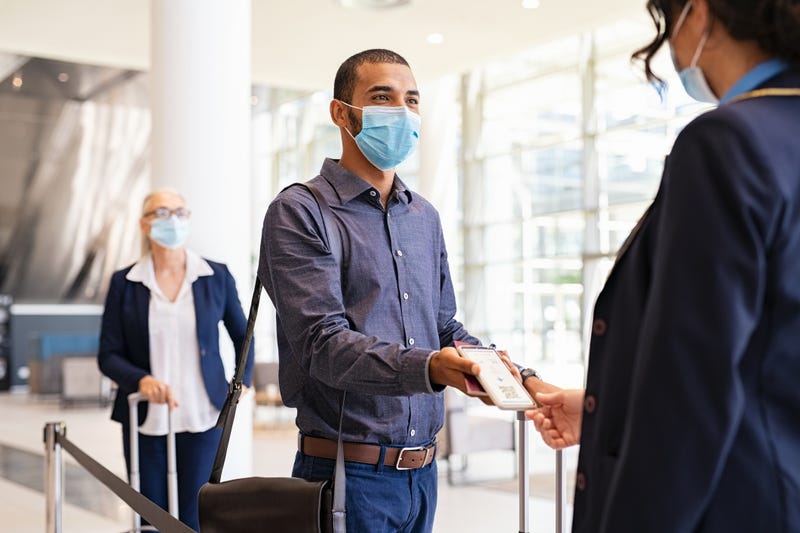
The pandemic has shifted yet again.
As the United States reaches a plateau in new COVID-19 transmissions, some European countries are dealing with new all-time highs, spelling uncertainty especially as U.S. international borders are reopening more widely at the start of next week.

"We are definitely seeing a rise in Europe," said Dr. Peter Chin-Hong, a professor of medicine and Associate Dean for Regional Campuses at UCSF on Friday’s Ask an Expert.
"With this virus being so surprising at every twist and turn, I guess I stopped being surprised at anything emerging in the news," he told KCBS Radio’s Holly Quan and Dan Mitchinson.
A large contributing factor to the rise in cases is the change in seasons, he said. The cold weather and people seeking out more time indoors, "It’s the same formula we’ve heard before."
Many countries have also not been vaccinating younger people as consistently as others, for instance, the United Kingdom only started doing so recently, said Chin-Hong.
In the U.K., as well as in Germany, where cases are rising, reducing the level of restrictions too quickly may have also played a role.
"This has been quite a galvanizing point in the U.K. where many medical professionals are really worried and concerned that there are essentially no restrictions," he said.
While case numbers have increased, hospitalization cases haven’t yet risen to alarming levels. But many are concerned as the weather continues to get colder and immunity from the first series of vaccines wanes, that this will change.
While the U.K. and Germany are holding their own, "Hospitals are sort of on the brink," due to other reasons as well, like the flu season, said Chin-Hong.
"It’s going to be very complex," he said.
It’s also not yet clear if the reopening of U.S. borders will make a difference in the new surge. "It’s really controversial whether or not border closures actually work," said Chin-Hong. "Because borders are very porous in the first place."
Keeping the borders closed to prevent the spread of COVID-19 is an "imprecise system," he said.
Reopening will provide a much needed morale boost for people who haven’t seen their families and extended relatives for several months. There is a cost-benefit to the decision, but the human aspect to the benefit overrides the cost, he said.
As the weather gets warmer in the spring, he expects the case numbers to go down again.
For right now, people traveling to Europe should definitely be vaccinated before they go, and pay attention to the data coming out of their destination country, because not all of Europe is on the same level of transmission rates.

